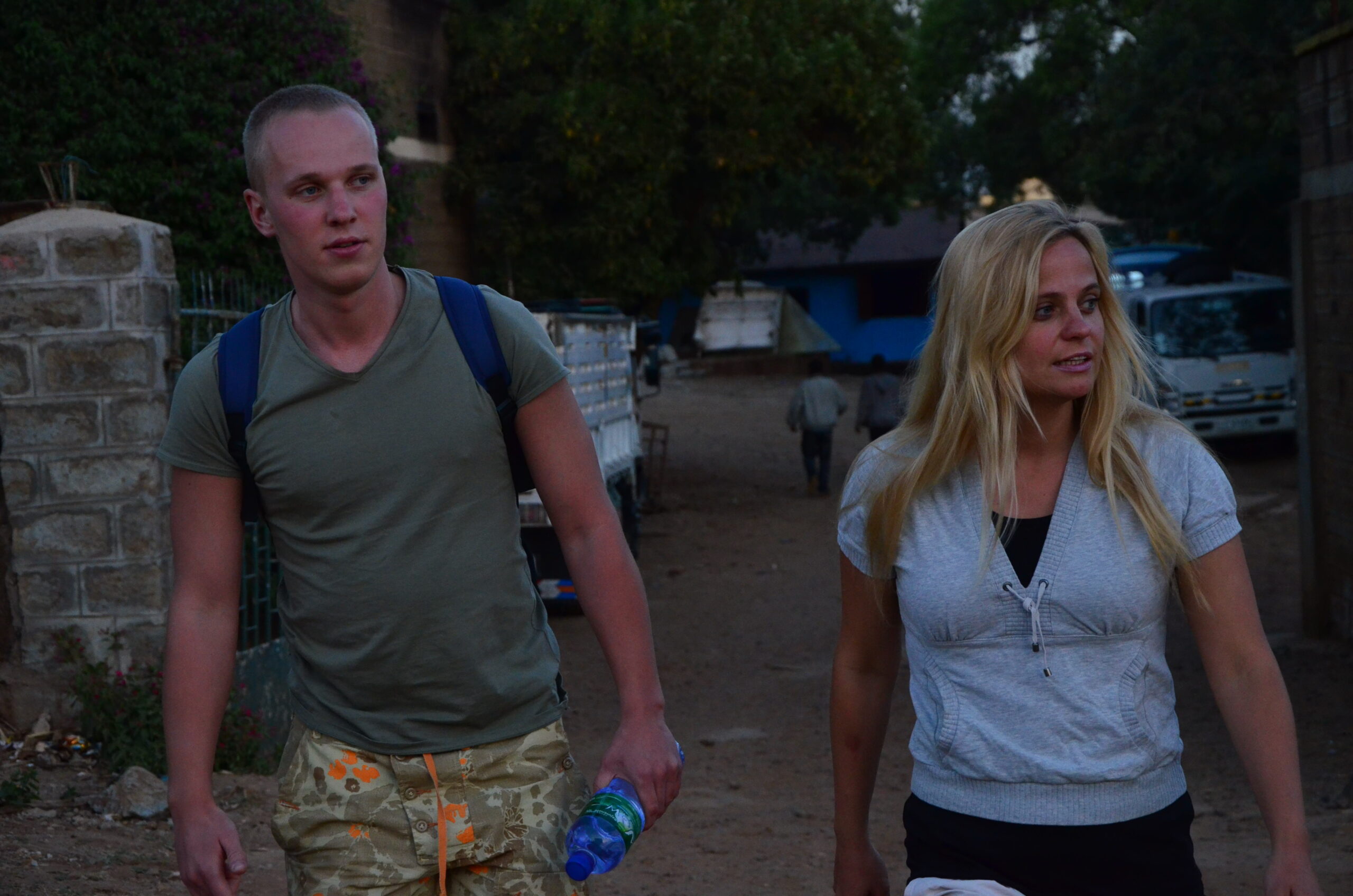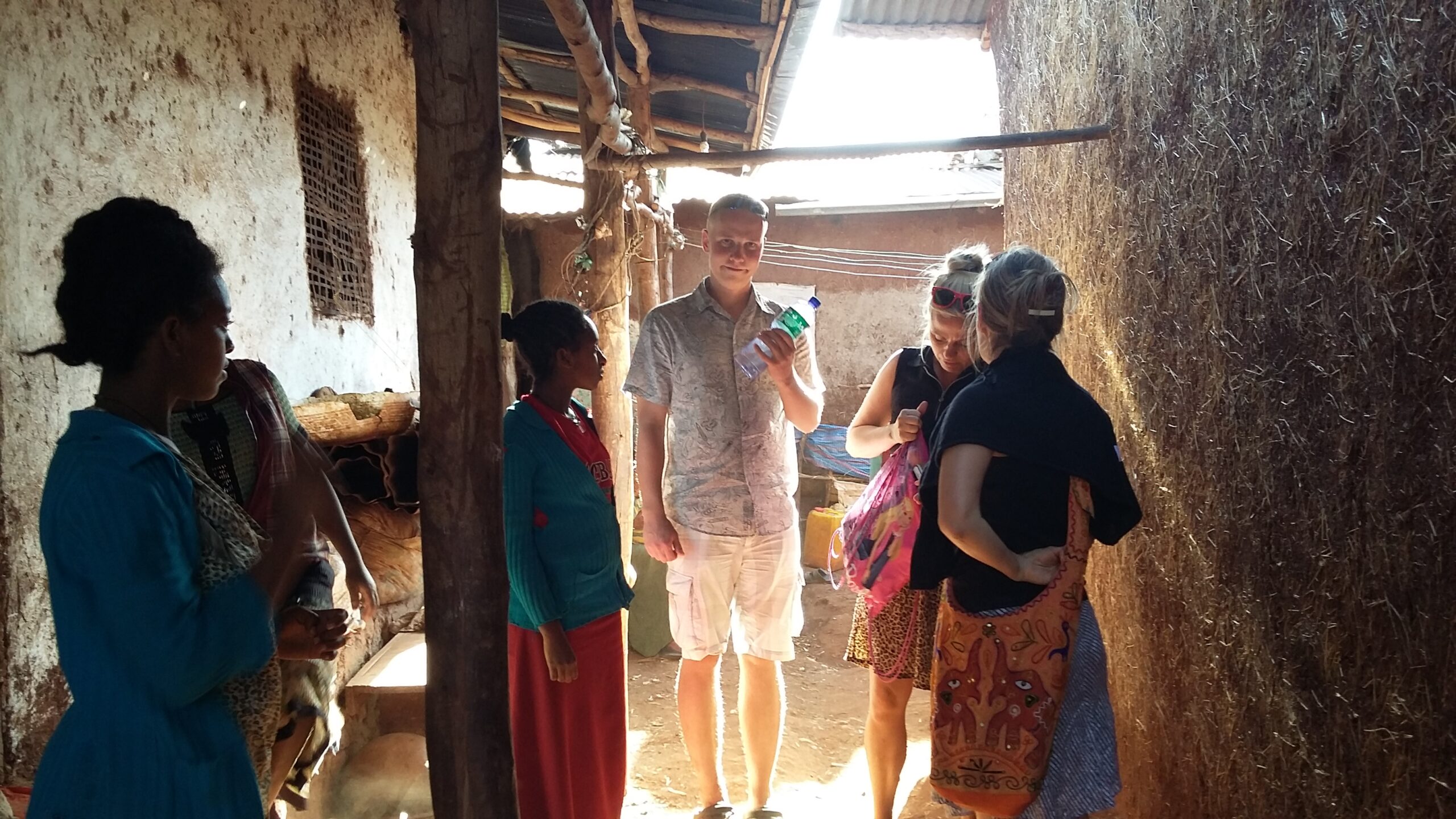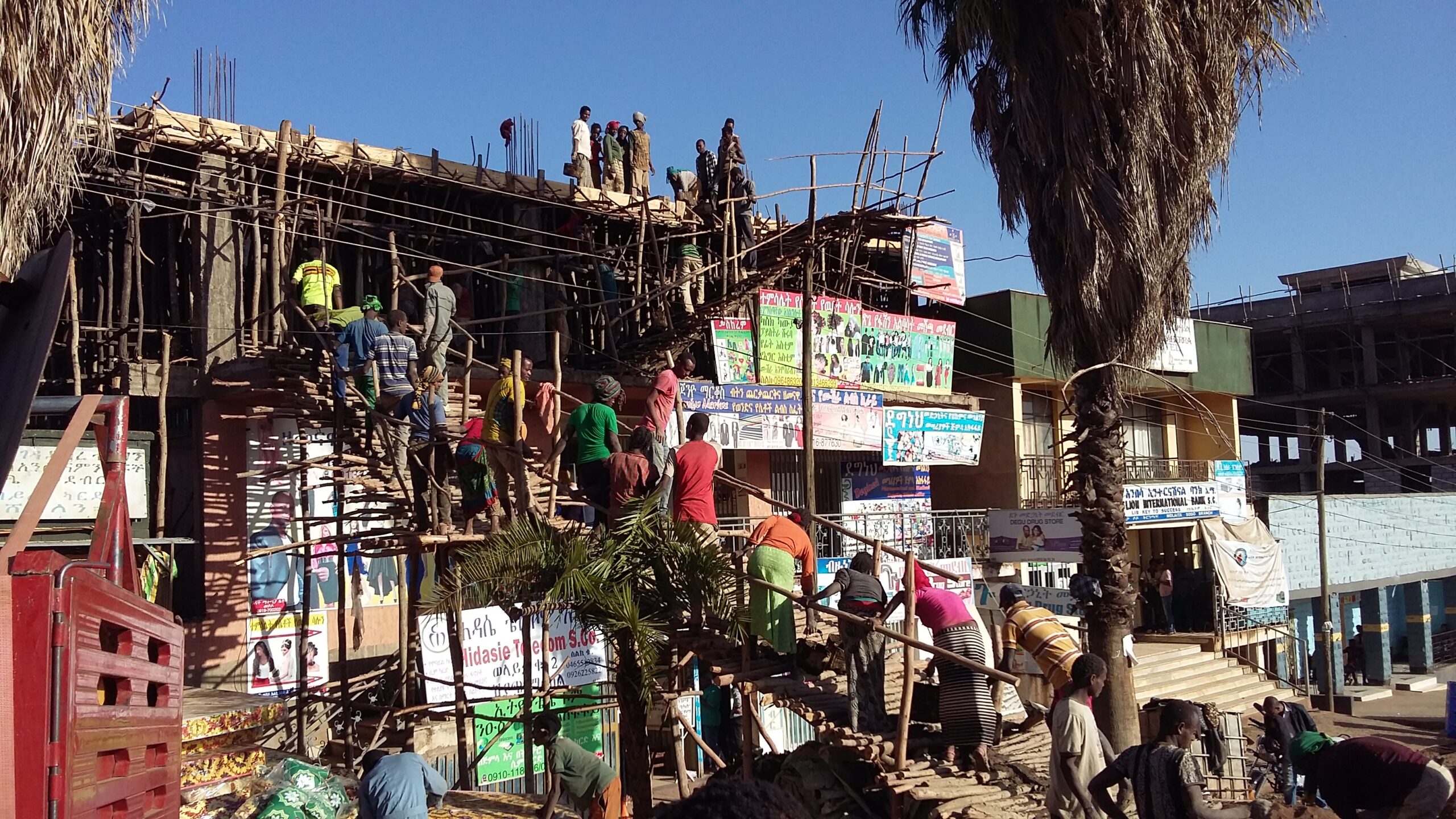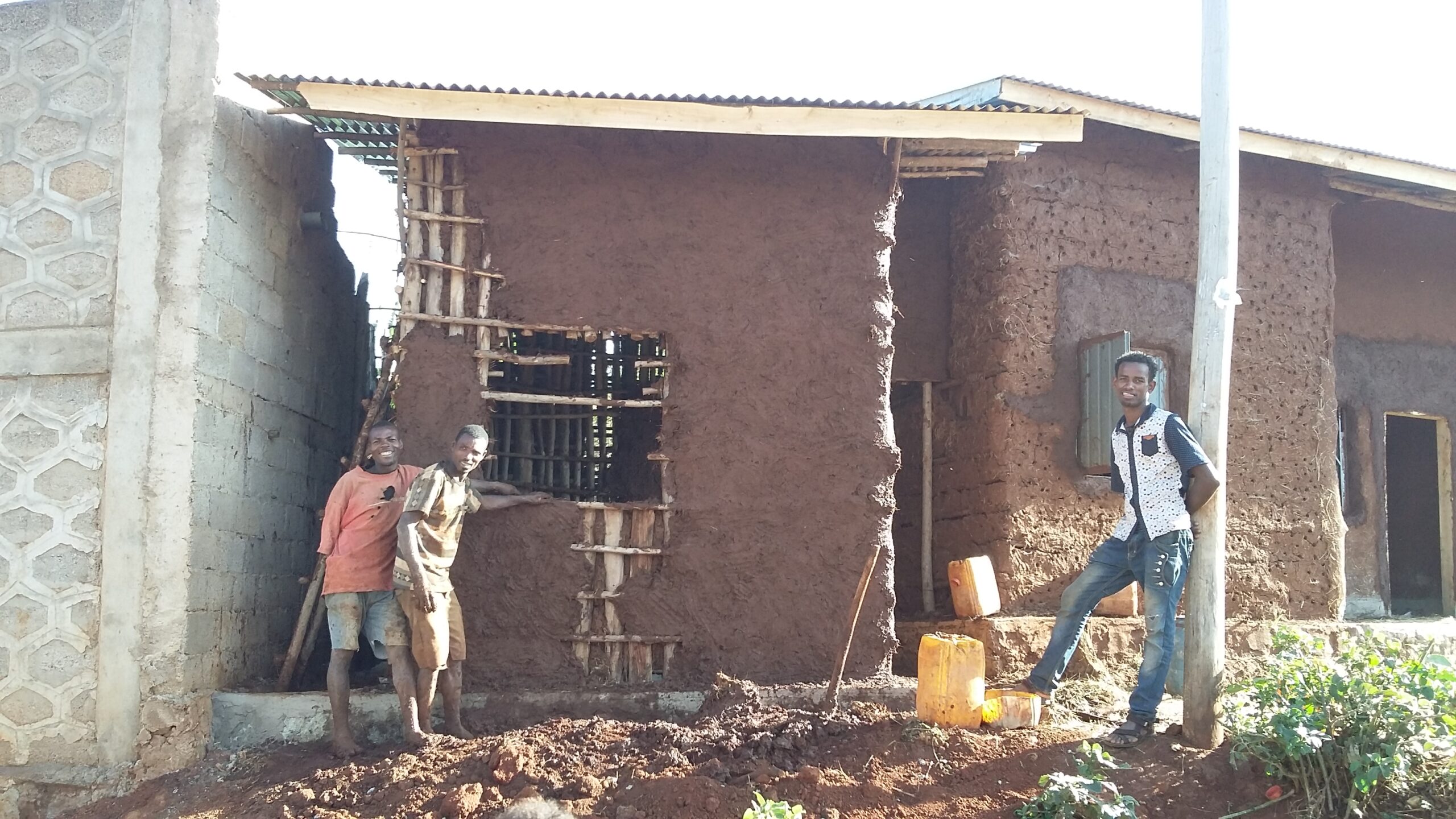8th of January – going to Soddo
We were woken by Merle knocking ont the door; for the first time during this trip she had had gotten up before us. An estonian- like cool summer morning greeted us in the courtyard of Asaf’s hostel as we hastily packed our stuff to make it to the 9:00 bus to avoid slopping in the bus in the midday heat.
Apart from the fact that this was the third time I went to the shower without getting a drop of water out of it the morning passed without any incidents and as planned, that is if you can speak about any plans in Ethiopia.
Once we got to the coach station we were again admiting that there is an abundance of “helpers” who all after getting their shae of money after having touched your luggage as little as with a fingertip or helped to lift it. They could be described as “spotters” – they are quick to notice how to make our needs profitable for themselves. Since Ethiopia is corrupt and there isn’t a proper welfare system the wealthier ethiopians generously donate to the poor fellow. We, the poor europeans, can’t be that generous all the time. According to Merle Ethiopians were ruined by money by the first christians who came here to build their churches and offered money for attendance and that is where it all probably comes from. Well, it is apparent that what you reap is what you sow. Anyways, we managed to get our luggages which were full of shirts for children and all kinds of other stuff setteled so that they were not in danger of falling off the bus. Merle told us that only couple of years ago the buses had wooden bences and hens clucking under them. For today the white bus, that had first class written on the side of it had seats characteristic to soviet buses and instead of conditioners fans were hanging from the ceilings which were never turned on though so the air exchange was stil lthrough the windows.The ride was joyful because whatever it is that they use to make their roads it seems that they bury a massive amount of speedbumps under them which the bus rides over at full speed so the passengers can enjoy bobbling around like peas in a jar. It was the will of god that we got to the bus when there was the exact number of seat available for our group. If we had got there when only half of the bus was full we would have had to wait until it filled up and only then we would have departed. Time is a relative concept in Ethiopia and one would think that it was in Ethiopia where Einstein came up with his theory of relativity even though it actually wasn’t so.
The architecture became more and more beautiful on our way from Awassa to Soddo. If previously a round shaped mudhuts looking like piles of hay prevailed then now simple two story clay houses appeared with a patch of grass in front of them lined with cactai hedges and banana plants bowing their heads over it with dignity. Flabby eared sheep were merrily nibbling on the grass around the house.
Horses grazing on the road or ox, mules, goats and lamb being herded also diversified the busride. Every now and then one of these beasts found itself staring face to face with the bus and the bus went slaloming. You can’t run over any of the animals because then you have to pay full expenses to the owner and the whole mess might take hours.
Soddo is a small town setteled on mellow green foots of Damota mountain. At the hotel we expected bamboo matresses and spartan conditions but we got a really nice and clean room with a bathroom where the electricity and water vanish like Mary Poppins with eastern winds but they were there. The minaret nearby doesn’t stand imposingly stoic like most cathedrals in europe but is constatly and loudly calling people to prayer. I must admit that the noise blaring into my room four o’clock at night did make me pray and if not for anything else then at least for the hope that the loudspeaker would break down because as an average european anything more than 2h of the local prayers is more than enough.
Bags and luggages dropped to the hotel we proceeded with conquering the hillside to a house of a very poor student – Amanuel. Weather-beaten streets of red clay resemble the skin of a hippo who has been wallowing in mud. The sparkly eyed kids in torn clothing who stare out from mud huts come across like suckled chocolate cadys that roll onto the streets to say hello, to hug when a stranger is around but fortunately they don’t ask for money so much as in Hawassa. Some of the children keep following us and by the time we reach Amanuels house there is a group of 15 children behind us. Inevitably Jesus comes to mind in the midst of this since he also had a crowd stringing behind, above and around him. I also get a better sense of how tiring it might have been.
We finally reach a slightly detached slooping clay hut on the hillside in front of which is a football field and in the middle of that a picturebook donkey carrying four yellow canisters of water and grazing. I reach for my phone because the animal belongs on a picture but for some reason one of the children either feels jelaousy towards the creature or is just spiteful and makes the creature run though he notices that I want to take a picture. I still get some kind of a shot.
A slooping wooden door on the clay hut. A small woman with dirty clothes and a shining smile reminds the Little Witch who happily did good to everyone. A bench up against the wall is brought and placed in the middle of a messy room on the earth floor for us to sit on. We are here to find out about how the boy has been but seemingly a rather simple task turns out to be quite difficult when we find out that the boy is struggleing to answer even the simplest questions and the parents of course don’t speak any english at all. Fortunately a couple of older local kids have slipped into the hut and are helping to translate and we get the answers we need. After providing clothing aid the woman of the house shows us a bundle of a one year old baby sleeping on the bed in the back room. The only piece of furniture in the house is the double bed in front of which is the bonfire place used for cooking.Hillevi says that the parents sleep in the bed with the one year old while the rest of the children lay sugarbags on the floor and during the rainy season when the floor is muddy also lay bambooshoots under the sugarbags and sleep like that. No wonder the mortality rate of small children is so high. It is trange to hear Merle say that about 80 percent of the population is aged up to early twenties. The average life expectancy is around 40.
We head to a more wealthier family who lost their father a year ago. It is a tradition in Ethiopia that when such a thing happens the friends of the family donate money to the family. In this situation it allowed for the finishing of two guestrooms which the father had started. Everything comes handy to them, who love God. We only step in for a moment to say hello but unnoticingly the moment turns into 2h since the landlady offered fir-fir and the chat continues with the coffe and popcorn ritual.
On our way back to the hotel I inquire why people dont mend their clothes because there are people walking around with worn-out clothes everywhere. From the flight attendants to kids running around. Merle says that they hand out sets with thread and needles and teach people how to sew but nevertheless people don’t consider it necessary and walk around with holes proudly on their clothes.
Egle




